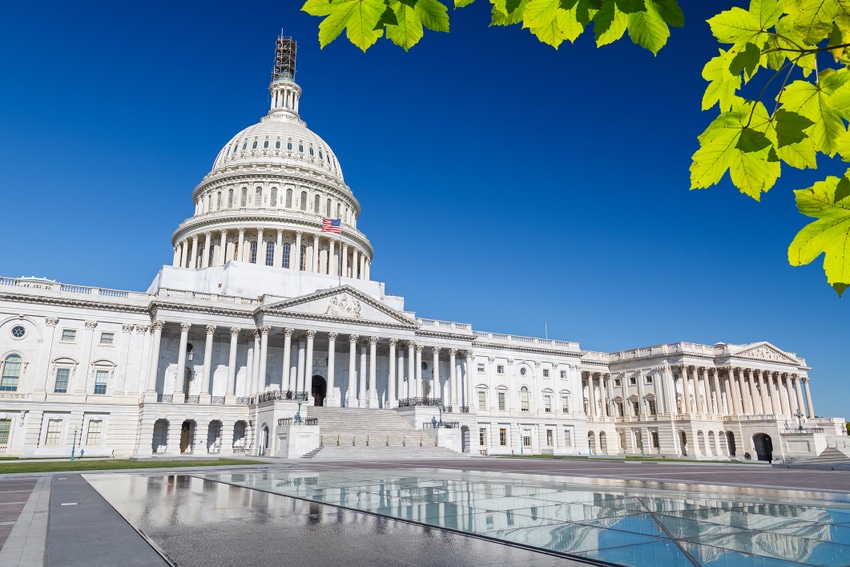Legislation implements loan forgiveness for veterinarians who commit to serving in federally designated veterinary shortage areas.

Addressing the shortfall of veterinarians in rural areas is again receiving attention this legislative session. Sens. Mike Crapo (R., Idaho) and Debbie Stabenow (D., Mich.) reintroduced their Veterinary Medicine Loan Repayment Program Enhancement Act (VMLRPEA). Reps. Adrian Smith (R., Neb.) and Ron Kind (D., Wis.) introduced companion legislation, H.R. 1268, in the U.S. House of Representatives.
Nearly every state has a rural community that is suffering from a shortage in essential veterinary services. To help address this concern, in 2003, Congress established the Veterinary Medicine Loan Repayment Program (VMLRP). This program assists selected food animal and public health veterinarians with student loan repayment for a three-year commitment to practice in areas of the country facing a veterinarian shortage. This program helps veterinarians with daunting student loan debt with making a living in a community where starting a practice may be otherwise financially impossible.
The problem is that VMLRP is subject to a significant federal withholding tax on the assistance provided to qualifying veterinarians. This affects the amount of limited resources that can go toward this effort and the reach of its benefits. The Crapo-Stabenow legislation will address this by providing an exemption from the federal income withholding tax for payments received under VMLRP and similar state programs. Thus, more veterinarians would have the opportunity to practice in small, rural communities where their services are needed and more communities will have much-needed veterinarian services.
Student loan debt for graduates of veterinary colleges in 2015 topped $140,000 on average. This significant debt can make starting a veterinary practice in a rural shortage area cost prohibitive for recent graduates. As a result, many new graduates are unable to practice in underserved areas where they are most needed.
VMLRP makes practice in rural underserved areas more financially feasible for recent graduates by providing up to $75,000 in loan repayments in exchange for at least three years of service in designated veterinary shortage areas. Since the program's implementation in 2010, more than 350 veterinarians have participated across 45 states, Puerto Rico and U.S. federal lands. However, a 39% income withholding tax is applied to each award, which significantly lowers the number of awards that the U.S. Department of Agriculture can make each year. If this tax had been removed, more than 100 additional veterinarians – and rural communities – could have benefited from VMLRP. If passed, VMLRPEA will implement this important change.
“Access to quality animal care is critical to Idaho’s agricultural economy,” said Crapo. “Too often, ranchers and farmers cannot access the care they need because of a lack of veterinarians. This legislation will increase the number of veterinary doctors serving in the areas where they are needed most, helping to strengthen rural economies and protect the safety of our food supply.”
“Veterinarians are vital to animal welfare and our nation’s agricultural economy,” said Stabenow. “Unfortunately, many small towns and rural communities in Michigan and across the country don’t have access to the veterinary services they need most. This bill creates important incentives for veterinarians to practice in underserved areas, where quality veterinary care is needed to ensure healthy livestock and a safe food supply.”
The American Veterinary Medical Assn. welcomed the bill. "The VMLRP is a win-win for veterinarians and rural economies because it provides loan relief while also helping alleviate veterinary shortages in areas that lack adequate access to veterinary services for livestock animals," said AVMA president Dr. Tom Meyer. "Unfortunately, the heavy tax applied to VMLRP awards decreases the number of awards that can be made and the number of rural communities that can benefit from increased services. We're grateful our leaders in Congress are again supporting legislation to remove this tax and maximize the effectiveness of the VMLRP. The AVMA played a key role in implementing the VMLRP and will continue our strong support of the VMLRPEA during 2017."
About the Author(s)
You May Also Like



.png?width=300&auto=webp&quality=80&disable=upscale)

